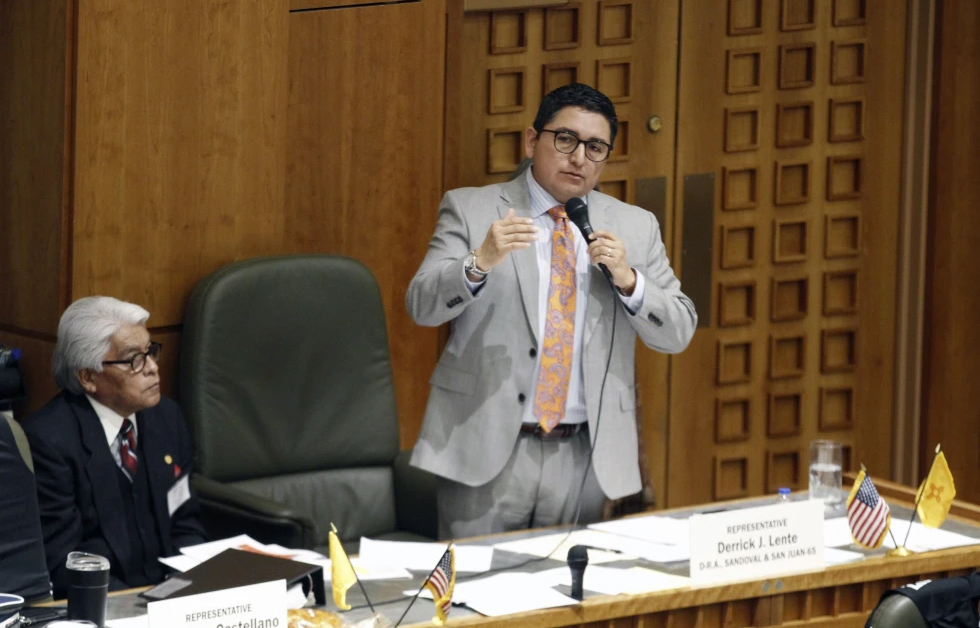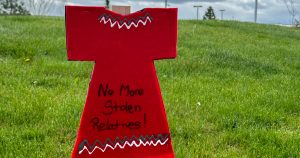By MORGAN LEE, Associated Press
SANTA FE, N.M. (AP) — New Mexico legislators would create a unique educational endowment of at least $50 million to help Native American communities create their own student programs, including efforts to teach and preserve Indigenous languages, under a proposal endorsed Feb. 8 by the state House.
The bill from Democratic legislators with ties to tribal communities including the Navajo Nation and smaller Native American pueblos won unanimous House approval on a 68-0 vote, advancing to the state Senate for consideration. Gov. Michelle Lujan Grisham recently voiced support for the initiative.
Sponsors say the endowment would help reverse the vestiges of forced assimilation of Native American children, including the legacy of at U.S.-backed boarding schools, and fulfill the state’s commitment to Native American students in the wake of a landmark state court ruling.
“What this does is it pushes back against 200-plus years of federal policies that sought to erase Native Americans from this nation and says, ‘Well, we know how to school, to teach our children best,’” said Rep. Derrick Lente, a resident and tribal member of Sandia Pueblo and lead cosponsor of the initiative. “They know that language is important.”
New Mexico is home to 22 federally recognized tribal communities, and the Oklahoma-based Fort Sill Apache Tribe also has land holdings in southern New Mexico near Deming. The U.S. Census indicates that Native Americans make up about 11% of the state population, both on and off reservation lands.
An appropriation from the state general fund would establish the “tribal education trust fund,” with annual distributions to tribal communities set at roughly 5% of the fund’s corpus — about $2.5 million on a balance of $50 million.
Under an agreement that Lente helped broker, tribes would determine how the money is divvied up among Native American communities using a “unanimous consensus process of consultation, collaboration and communication … with the option of appointing peacemakers in the event of a dispute regarding the formula.”
New Mexico lawmakers currently have a multibillion-dollar budget surplus at their disposal — a windfall linked to oil and natural gas production — as they craft an annual spending plan and search for effective strategies to raise average high school graduation rates and academic attainment scores up to national averages.
At the same time, state lawmakers have been under pressure for several years to resolve a 2018 court ruling that found New Mexico has fallen short of its constitutional duty to provide an adequate education to students from low-income households, Native American communities, those with disabilities and English-language learners.
“More important than the money — of $50 million — is the idea that a trust fund be established, and sovereign nations be named as the beneficiaries on behalf of their children,” said state Rep. Anthony Allison of Fruitland, who is Navajo. “Our dream is that this is just the beginning, and that future generations will benefit from our dreams and our vision on their behalf.” Lente said he continues to push for a larger, $100 million contribution by the state to the endowment.




